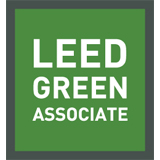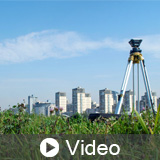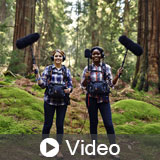A LEED site assessment evaluates environmental features that the design of a sustainable site and building should take into consideration. A well-developed assessment conducted before or during the conceptual design phase may reduce project costs and risks, promote occupants’ health, and honor a site’s unique characteris...
LEED Green Associate
48 Online Courses
|
|
Your brain is lying to you about sound. What you hear isn't what's actually there—it's a carefully constructed illusion your neural circuitry builds in milliseconds. Welcome to the hidden dimension of architecture. This course cracks open the secret world where neuroscience collides with building design. You'll discover...
|
|
In this course, we review the intent and applications for prerequisites and credits for the LEED v4.1 BD+C EQ category. We discover strategies to designing healthier spaces by improving indoor environmental quality for occupants. We discuss how indoor environmental quality can improve human health and well-being, worker...
|
|
There's a phantom haunting your LEED buildings. It sabotages productivity. Triggers stress. Tanks satisfaction scores. Yet it appears on no energy model, no daylighting analysis, no material specification. Sound—the forgotten dimension—is writing the soundtrack of failure in even your best projects. Discover how composer...
|
|
Welcome to an exciting journey through the revolutionary world of bio-based circular materials that are reshaping how we design and build. This course explores innovative construction materials derived from agricultural waste, fungi, and renewable plant sources that offer design professionals unprecedented opportunities...
|
|
Building occupants who can visually connect with outdoor environments while performing everyday tasks experience greater satisfaction, attentiveness, and productivity. In healthcare facilities, providing patients with views and access to nature can shorten hospital stays and reduce stress, depression, and the use of pain...
|
|
Imagine walking through a city where every crack in the sidewalk, every forgotten alleyway, and every hidden elevation tells a story more complex and fascinating than any guidebook could ever reveal. Welcome to the world of deep topography, an interdisciplinary methodology for understanding spatial environments through m...
|
|
In this course, we explain how design professionals can achieve the LEED v4.1 BD+C Indoor Water Use Reduction Prerequisite. We discuss strategies to help reduce potable water use in buildings such as specifying WaterSense labeled products. In addition, our team discusses challenges regarding the nation’s water supply and...
|















